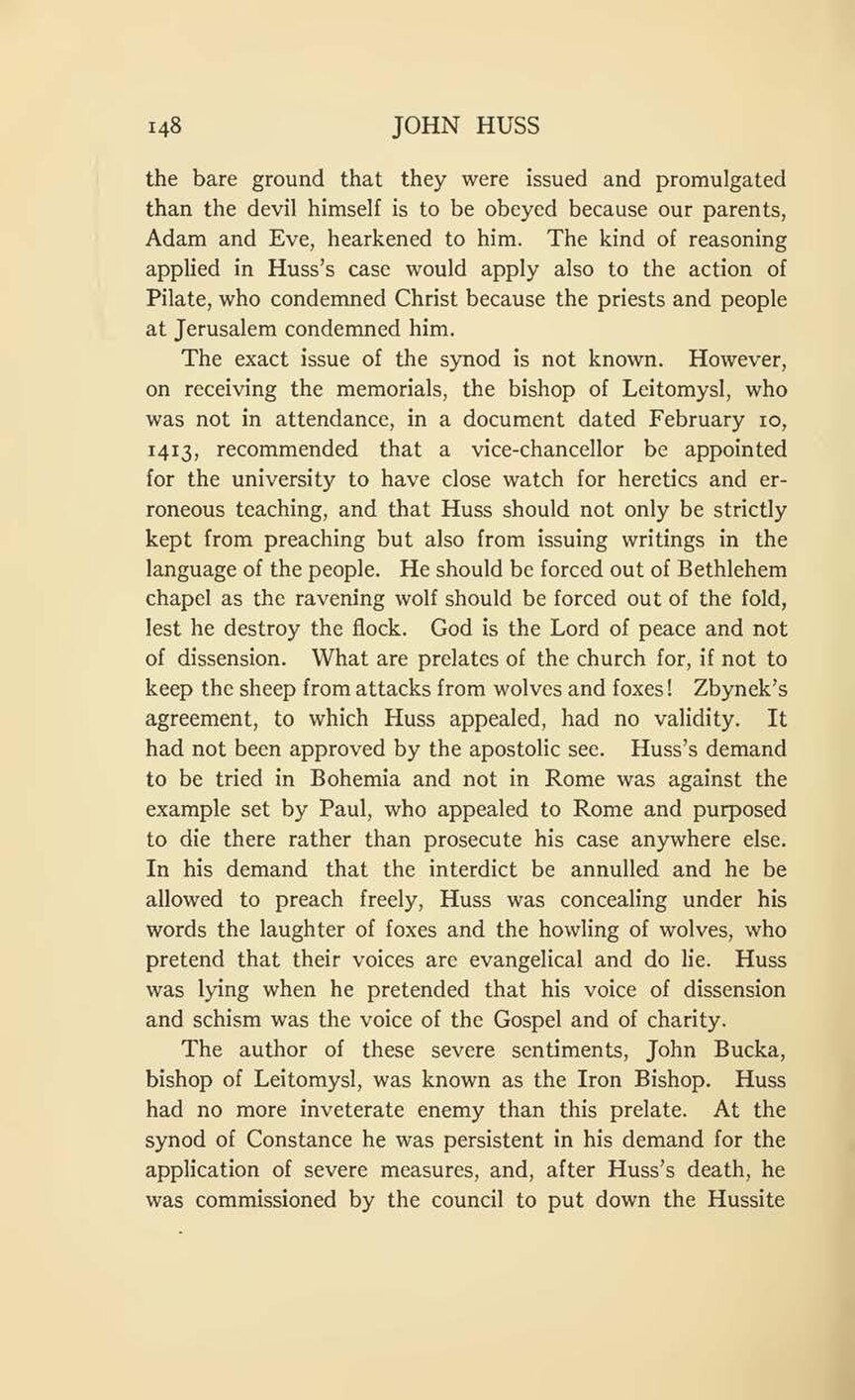the bare ground that they were issued and promulgated than the devil himself is to be obeyed because our parents, Adam and Eve, hearkened to him. The kind of reasoning applied in Huss’s case would apply also to the action of Pilate, who condemned Christ because the priests and people at Jerusalem condemned him.
The exact issue of the synod is not known. However, on receiving the memorials, the bishop of Leitomysl, who was not in attendance, in a document dated February 10, 1413, recommended that a vice-chancellor be appointed for the university to have close watch for heretics and erroneous teaching, and that Huss should not only be strictly kept from preaching but also from issuing writings in the language of the people. He should be forced out of Bethlehem chapel as the ravening wolf should be forced out of the fold, lest he destroy the flock. God is the Lord of peace and not of dissension. What are prelates of the church for, if not to keep the sheep from attacks from wolves and foxes! Zbynek’s agreement, to which Huss appealed, had no validity. It had not been approved by the apostolic see. Huss’s demand to be tried in Bohemia and not in Rome was against the example set by Paul, who appealed to Rome and purposed to die there rather than prosecute his case anywhere else. In his demand that the interdict be annulled and he be allowed to preach freely, Huss was concealing under his words the laughter of foxes and the howling of wolves, who pretend that their voices are evangelical and do lie. Huss was lying when he pretended that his voice of dissension and schism was the voice of the Gospel and of charity.
The author of these severe sentiments, John Bucka, bishop of Leitomysl, was known as the Iron Bishop. Huss had no more inveterate enemy than this prelate. At the synod of Constance he was persistent in his demand for the application of severe measures, and, after Huss’s death, he was commissioned by the council to put down the Hussite
